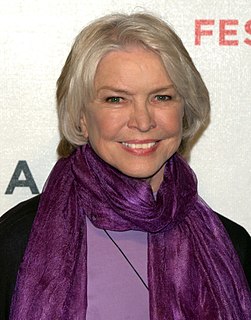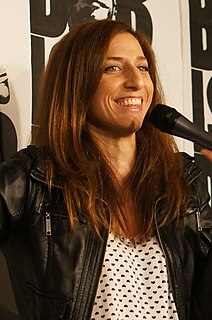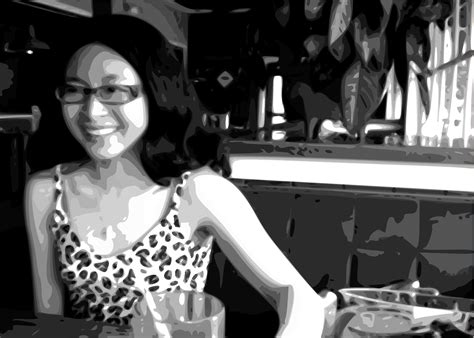A Quote by Sabine Baring-Gould
I gave up the notion of writing the life of Joan of Arc, as I found that there was absolutely no new material to be gleaned on her history - in fact, she had been thrashed out.
Related Quotes
At that moment a very good thing was happening to her. Four good things had happened to her, in fact, since she came to Misselthwaite Manor. She had felt as if she had understood a robin and that he had understood her; she had run in the wind until her blood had grown warm; she had been healthily hungry for the first time in her life; and she had found out what it was to be sorry for someone.
She wasn't ready to settle down, she told her friends. That was one way of putting it. Another was would have been that she had not found anyone to settle down with. There had been several men in her life, but they hadn't been convincing. They'd been somewhat like her table - quickly acquired, brightened up a little, but temporary. The time for that kind of thing was running out, however. She was tired of renting.
I've always thought - and I don't even know if I'd be right for the part - that Jean Seberg would make a great biopic. She was in Jean-Luc Godard's 'Breathless,' she played Joan of Arc. She had this eventful and traumatic adulthood, she thought the FBI was after her, and she became a darling of the French New Wave.
When I was in New York, I got to see Joan Rivers do an hour of material, and it blew my mind. I don't remember how old she was at the time, but she just had this edgy hour that had so much funny stuff in it, and she was so fearless. If you only watch her on the red carpet, you don't get a sense of what a legendary standup comedian she is.
From an early age she had developed the art of being alone and generally preferred her own company to anyone else’s. She read books at enormous speed and judged them entirely on her ability to remove her from her material surroundings. In almost all the unhappiest days of her life she had been able to escape from her own inner world by living temporarily in someone else’s, and on the two or three occasions that she had been too upset to concentrate she had been desolate.
Occasionally, on screen, Barbara [Stanwyck] had a wary, watchful quality about her that I've noticed in other people who had bad childhoods; they tend to keep an eye on life because they don't think it can be trusted. After her mother was killed by a streetcar, she had been raised in Brooklyn by her sisters, and from things she said, I believe she had been abused as a child. She had lived an entirely different life than mine, that's for sure, which is one reason I found her so fascinating. I think her early life was one reason she had such authenticity as an actress, and as a person.
Francie was ten years old when she first found an outlet in writing. What she wrote was of little consequence. What was important was that the attempt to write stories kept her straight on the dividing line between truth and fiction. If she had not found this outlet in writing, she might have grown up to be a tremendous liar.
In this moment she felt that she had been robbed of an enormous number of valuable things, whether material or intangible: things lost or broken by her own fault, things she had forgotten and left in houses when she moved: books borrowed from her and not returned, journeys she had planned and had not made, words she had waited to hear spoken to her and had not heard, and the words she meant to answer with. . . .
She had always been a reader… but now she was obsessed. Since her discovery of the book hoard downstairs from her job, she’d been caught up in one such collection of people and their doings after the next…The pleasure of this sort of life – bookish, she supposed it might be called, a reading life – had made her isolation into a rich and even subversive thing. She inhabited one consoling or horrifying persona after another…That she was childless and husbandless and poor meant less once she picked up a book. Her mistakes disappeared into it. She lived with an invented force.
My adoptive mother tirelessly worked most of her life to build up my self-esteem. So what happened was finding her started to shed light and destroy my mythos. So for the first year of knowing her, my mom kind of actually literally visited me in Detroit and kind of gave me a tour of my life - where I was conceived, where I was born, where she found out she was pregnant. It was amazing, Terry, and very emotional.






































